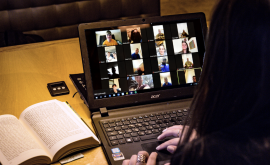
Reader Studies in the Digital Age
An International Symposium at the Price Lab for Digital Humanities, co-organized with the Section for Sociology of Literature, Uppsala University. Co-Sponsored by the Wolf Humanities Center
This symposium marks the rise in recent years of empirical reader studies: data-driven research into what, why, and how people read. The full emergence of this field has been a long time coming. Literary scholars have never shown much interest in conducting empirical study of contemporary reading practices among ordinary, non-professional, non-academic people. Janice Radway’s Reading the Romance (1984) is the glaring exception that proves the rule. By far the most widely-cited study of amateur literary readers, Radway’s book has been more influential for its findings about lower middle-class women readers than for its methods. It somehow achieved canonical status in a discipline that flatly rejected its core demand: to gather and analyze data not about texts but about “the complex social event of reading.”
That demand is now finally producing a concerted response. Like other “complex social events,” reading has been reshaped and remediated by the internet. Literary scholars are seizing on this development, digging into the wealth of information deposited on social media and elsewhere by people who read, rate, review, classify, photograph, discuss, love, imitate, parody, or otherwise do things with books online. This kind of data does not speak to the whole range of readerly activity, much of which still transpires offline. And up until now, it has yielded limited knowledge about race, ethnicity, and other demographic dimensions of today’s reading communities. But the sheer scale of social reading platforms like Goodreads and Wattpad, which boast tens of millions of participants, suggests that many questions about how reading relates to social identities, social groups, and social divisions may be answerable if the task of data analysis is approached with sufficient care and ingenuity.
“Reader Studies in the Digital Age” gathers some of the most prominent scholars in empirical reader studies, along with a few others whose work, though less directly data-driven, is helping to shape the area of inquiry. Our aim is to share new findings and engage in a series of focused discussions about the current state and future directions of the field. Particular emphasis will be placed on how the various strains of work in this field might contribute, either methodologically or through substantive findings, to knowledge about reading communities, the relationship between literary consumption and social identity, and the ways our habits of reading unite us or divide us from others.
All interested scholars and students from Penn or neighboring institutions are welcome to attend any portion of this weekend-long event. The symposium begins on Friday, April 5th at 5:00 PM in the Fisher-Bennett Faculty Lounge with a keynote address by Simone Murray, Professor of Literary Studies at Monash University. Professor Murray's books include The Adaptation Industry (2012) and The Digital Literary Sphere (2018). Her keynote lecture will be "Actively Seeking Emotional Devastation: Affective Crosscurrents on BookTok."
The Saturday and Sunday presentations will be in the Humanities Conference Room on the 6th floor of Williams Hall. The full program, with abstracts and participants' bios, is here.



